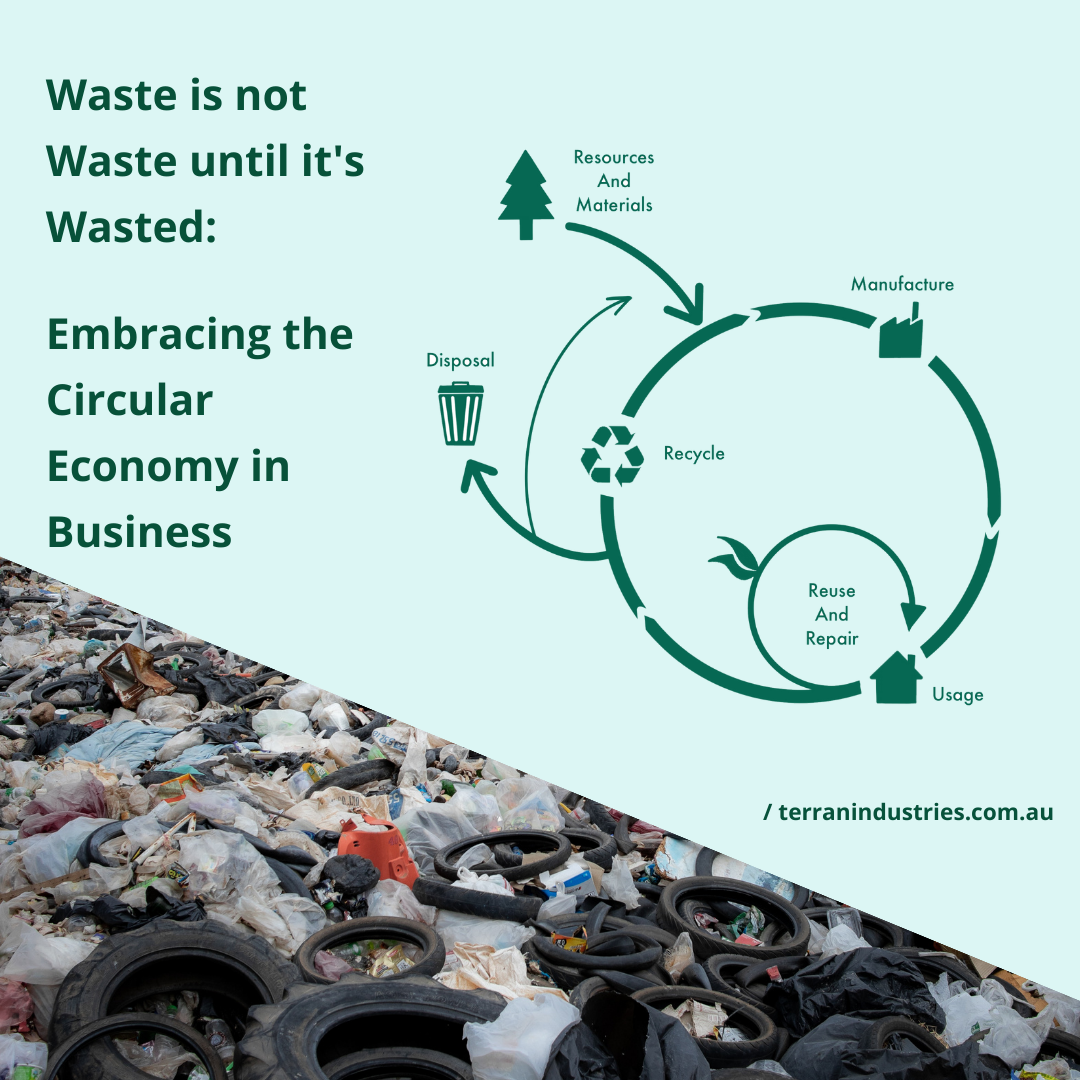BusinessCircular EconomyRecyclingSustainabilitySupply ChainWaste Isn't Waste Until It's Wasted: Embracing Circularity

In a world grappling with environmental challenges and resource scarcity, the concept of waste has taken centre stage.
The traditional linear economy, characterised by the "take-make-dispose" model, is no longer sustainable.
The circular economy, on the other hand, presents a transformative approach that not only reduces waste but also generates economic opportunities. At the heart of this transformation lies the idea that waste isn't waste until it's wasted.
Let's explore how the circular economy can reshape businesses and pave the way for a more sustainable future.
The Circular Economy and its Principles:
The circular economy is a regenerative system that aims to keep products, components, and materials at their highest utility and value for as long as possible. It proposes a shift away from the traditional linear model by promoting three core principles:
Designing out waste and pollution
Keeping products and materials in use
And regenerating natural systems.
Designing Out Waste and Pollution:
In the circular economy, waste prevention takes precedence over waste management.
Businesses are encouraged to design products and processes that minimise waste generation and reduce the environmental impact throughout the lifecycle.
This involves rethinking product design, considering the use of renewable materials, and implementing innovative production techniques.
By doing so, businesses can avoid the unnecessary creation of waste and maximise resource efficiency.
Keeping Products and Materials in Use:
Rather than discarding products after their primary use, the circular economy emphasises the importance of extending their lifespan through reuse, repair, and recycling.
By implementing strategies such as product remanufacturing, sharing platforms, and take-back programs, businesses can ensure that valuable resources remain within the economy for longer periods.
This not only reduces waste but also creates new business opportunities, fosters innovation, and strengthens customer loyalty.
Regenerating Natural Systems:
The circular economy recognises the vital role of nature and aims to restore and regenerate ecosystems.
By embracing sustainable practices, businesses can contribute to the preservation of natural resources, biodiversity, and the overall health of the planet.
Adopting renewable energy sources, implementing sustainable agricultural practices, and supporting regenerative initiatives are some of the ways businesses can actively participate in ecosystem regeneration.
Business Opportunities in the Circular Economy:
While the circular economy presents environmental benefits, it also offers substantial economic opportunities for businesses.
Embracing this model can drive innovation, enhance competitiveness, reduce costs, and improve resource management.
Let's explore some of the ways businesses can leverage the circular economy:
1. Product-as-a-Service (PaaS) Models: Shifting from selling products to offering product usage or access, allows businesses to retain ownership, repair and upgrade products, as well as extend their lifecycles. This approach incentivises durability, quality, and resource efficiency.
2. Material Recovery and Recycling: By establishing efficient collection and recycling systems, businesses can recover valuable materials from their own products or collaborate with other organisations. This reduces the demand for virgin resources, lowers costs, and strengthens supply chain resilience.
3. Collaborative Networks: Engaging in partnerships and collaborations within and across industries enables businesses to share resources, knowledge, and expertise. By creating closed-loop systems and leveraging collective intelligence, organisations can maximise efficiency and drive circularity.
4. Remanufacturing and Upcycling: Rather than disposing of used products, businesses can explore opportunities to refurbish, remanufacture, or upcycle them into new products. This not only reduces waste but also extends the value of materials and supports a circular market.
Conclusion:
Incorporating the principles of the circular economy into business practices is crucial for creating a sustainable future. By understanding that waste isn't waste until it's wasted, companies can reimagine their role in the value chain, contribute to environmental conservation, and unlock new economic opportunities.
Embracing the circular economy not only minimises waste and pollution but also fosters innovation, promotes resource efficiency, and enhances long-term profitability.
Let us remember that in the circular economy, waste becomes a valuable resource, and by valuing it, we can pave the way to a more sustainable and prosperous future.

Evannah Jayne
Founder & CEO
A passion for sustainability and a desire to change the world, Evannah seeks to raise awareness of the important issues surrounding our planet today.
